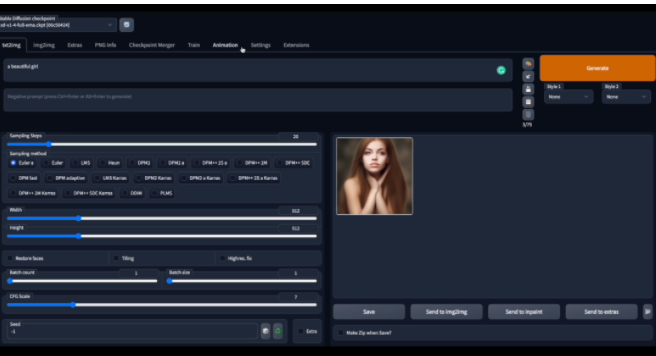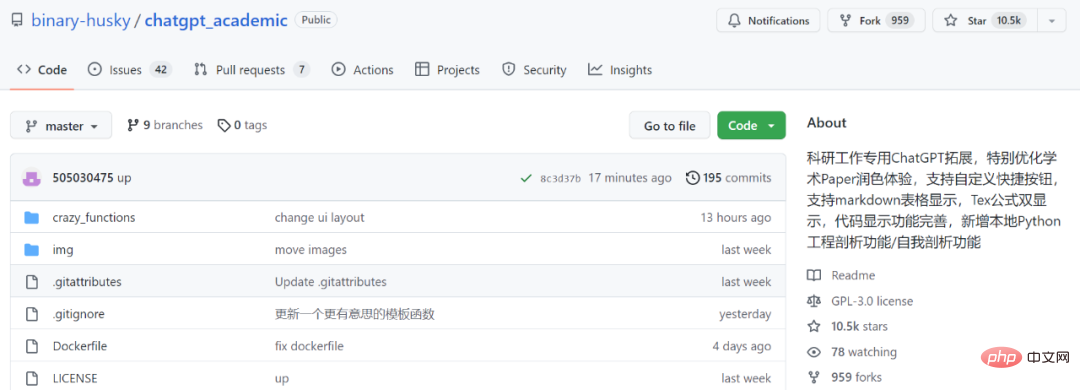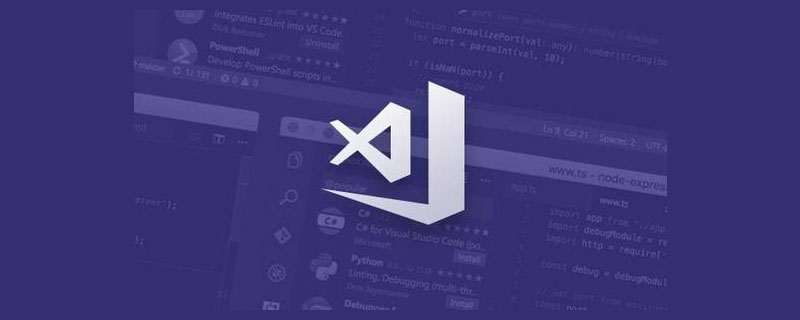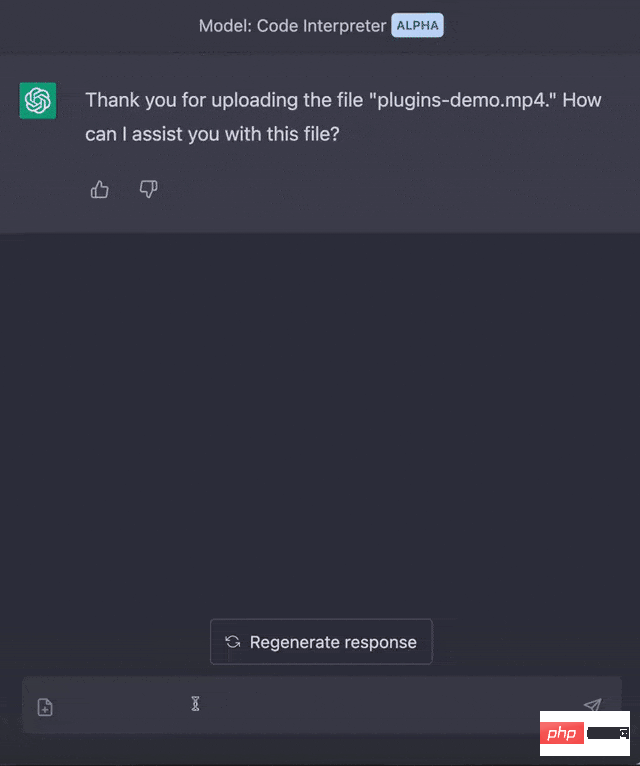 Backend Development
Backend Development Python Tutorial
Python Tutorial ChatGPT Python Plug-in Development Guide: Improving Chat Interaction Functions
ChatGPT Python Plug-in Development Guide: Improving Chat Interaction Functions
ChatGPT Python plug-in development guide: To improve the function of chat interaction, specific code examples are required
Introduction:
ChatGPT is a powerful chat robot launched by OpenAI Model can realize human-computer dialogue interaction. In order to further enhance the functionality of ChatGPT, the OpenAI team allows developers to customize plug-ins to enhance the interactive capabilities of the chatbot. This article will introduce how to develop a Python plug-in for ChatGPT and provide some specific code examples.
1. Plug-in development preparations
-
Install ChatGPT: First, make sure you have installed OpenAI’s ChatGPT library. You can install the latest version by using the pip command:
pip install openai
- OpenAI account and API key: Before using the ChatGPT API, you need to register an account on the OpenAI official website and obtain an API key for Certification.
2. Create the ChatGPT plug-in
-
Import the required modules:
First, import the necessary modules to develop the ChatGPT plug-in.import openai import json
-
Initialize ChatGPT:
Next, initialize the ChatGPT model using the API key.openai.api_key = 'YOUR_API_KEY'
-
Define plug-in function:
Create a function to extend the functionality of ChatGPT. This function receives the text entered by the user, calls the ChatGPT model, and returns the bot's reply.def chat_with_plugin(input_text): response = openai.Completion.create( engine="text-davinci-003", prompt=input_text, max_tokens=100, temperature=0.7 ) return response.choices[0].text.strip()
3. Test the ChatGPT plug-in
You can now use the plug-in function defined above for testing. The following is a simple example:
user_input = "你好,我是一个开发者" bot_response = chat_with_plugin(user_input) print(bot_response)
4. Further development of the plug-in - using context
-
Update the plug-in function:
In order to enhance the conversation coherence of ChatGPT, you can Use contextual information as input. Here is an example of a modified plug-in function:def chat_with_plugin(input_text, context=None): if context: prompt = f"{context} User: {input_text}" else: prompt = input_text response = openai.Completion.create( engine="text-davinci-003", prompt=prompt, max_tokens=100, temperature=0.7 ) if context: response_text = response.choices[0].text.strip() bot_response = response_text[len(context):].strip() else: bot_response = response.choices[0].text.strip() return bot_response -
Testing the plug-in function with context:
Now, you can use the context information for testing. The following is an example:context = "早上打了一场激烈的篮球比赛" user_input = "我感觉累得不行" bot_response = chat_with_plugin(user_input, context) print(bot_response)
Conclusion:
Through custom plug-ins, we can further extend the functionality of ChatGPT and provide more intelligent and personalized chatbot interactions. This article describes how to develop a Python plug-in for ChatGPT and provides some specific code examples for reference. Developers can further try different plug-in functions and optimizations on this basis. I wish you develop more excellent ChatGPT plug-ins!
The above is the detailed content of ChatGPT Python Plug-in Development Guide: Improving Chat Interaction Functions. For more information, please follow other related articles on the PHP Chinese website!
 令人惊艳的4个ChatGPT项目,开源了!Mar 30, 2023 pm 02:11 PM
令人惊艳的4个ChatGPT项目,开源了!Mar 30, 2023 pm 02:11 PM自从 ChatGPT、Stable Diffusion 发布以来,各种相关开源项目百花齐放,着实让人应接不暇。今天,着重挑选几个优质的开源项目分享给大家,对我们的日常工作、学习生活,都会有很大的帮助。
 Word文档拆分后的子文档字体格式变了怎么办Feb 07, 2023 am 11:40 AM
Word文档拆分后的子文档字体格式变了怎么办Feb 07, 2023 am 11:40 AMWord文档拆分后的子文档字体格式变了的解决办法:1、在大纲模式拆分文档前,先选中正文内容创建一个新的样式,给样式取一个与众不同的名字;2、选中第二段正文内容,通过选择相似文本的功能将剩余正文内容全部设置为新建样式格式;3、进入大纲模式进行文档拆分,操作完成后打开子文档,正文字体格式就是拆分前新建的样式内容。
 学术专用版ChatGPT火了,一键完成论文润色、代码解释、报告生成Apr 04, 2023 pm 01:05 PM
学术专用版ChatGPT火了,一键完成论文润色、代码解释、报告生成Apr 04, 2023 pm 01:05 PM用 ChatGPT 辅助写论文这件事,越来越靠谱了。 ChatGPT 发布以来,各个领域的从业者都在探索 ChatGPT 的应用前景,挖掘它的潜力。其中,学术文本的理解与编辑是一种极具挑战性的应用场景,因为学术文本需要较高的专业性、严谨性等,有时还需要处理公式、代码、图谱等特殊的内容格式。现在,一个名为「ChatGPT 学术优化(chatgpt_academic)」的新项目在 GitHub 上爆火,上线几天就在 GitHub 上狂揽上万 Star。项目地址:https://github.com/
 30行Python代码就可以调用ChatGPT API总结论文的主要内容Apr 04, 2023 pm 12:05 PM
30行Python代码就可以调用ChatGPT API总结论文的主要内容Apr 04, 2023 pm 12:05 PM阅读论文可以说是我们的日常工作之一,论文的数量太多,我们如何快速阅读归纳呢?自从ChatGPT出现以后,有很多阅读论文的服务可以使用。其实使用ChatGPT API非常简单,我们只用30行python代码就可以在本地搭建一个自己的应用。 阅读论文可以说是我们的日常工作之一,论文的数量太多,我们如何快速阅读归纳呢?自从ChatGPT出现以后,有很多阅读论文的服务可以使用。其实使用ChatGPT API非常简单,我们只用30行python代码就可以在本地搭建一个自己的应用。使用 Python 和 C
 vscode配置中文插件,带你无需注册体验ChatGPT!Dec 16, 2022 pm 07:51 PM
vscode配置中文插件,带你无需注册体验ChatGPT!Dec 16, 2022 pm 07:51 PM面对一夜爆火的 ChatGPT ,我最终也没抵得住诱惑,决定体验一下,不过这玩意要注册需要外国手机号以及科学上网,将许多人拦在门外,本篇博客将体验当下爆火的 ChatGPT 以及无需注册和科学上网,拿来即用的 ChatGPT 使用攻略,快来试试吧!
 用ChatGPT秒建大模型!OpenAI全新插件杀疯了,接入代码解释器一键getApr 04, 2023 am 11:30 AM
用ChatGPT秒建大模型!OpenAI全新插件杀疯了,接入代码解释器一键getApr 04, 2023 am 11:30 AMChatGPT可以联网后,OpenAI还火速介绍了一款代码生成器,在这个插件的加持下,ChatGPT甚至可以自己生成机器学习模型了。 上周五,OpenAI刚刚宣布了惊爆的消息,ChatGPT可以联网,接入第三方插件了!而除了第三方插件,OpenAI也介绍了一款自家的插件「代码解释器」,并给出了几个特别的用例:解决定量和定性的数学问题;进行数据分析和可视化;快速转换文件格式。此外,Greg Brockman演示了ChatGPT还可以对上传视频文件进行处理。而一位叫Andrew Mayne的畅销作
 ChatGPT教我学习PHP中AOP的实现(附代码)Mar 30, 2023 am 10:45 AM
ChatGPT教我学习PHP中AOP的实现(附代码)Mar 30, 2023 am 10:45 AM本篇文章给大家带来了关于php的相关知识,其中主要介绍了我是怎么用ChatGPT学习PHP中AOP的实现,感兴趣的朋友下面一起来看一下吧,希望对大家有帮助。


Hot AI Tools

Undresser.AI Undress
AI-powered app for creating realistic nude photos

AI Clothes Remover
Online AI tool for removing clothes from photos.

Undress AI Tool
Undress images for free

Clothoff.io
AI clothes remover

AI Hentai Generator
Generate AI Hentai for free.

Hot Article

Hot Tools

Safe Exam Browser
Safe Exam Browser is a secure browser environment for taking online exams securely. This software turns any computer into a secure workstation. It controls access to any utility and prevents students from using unauthorized resources.

SAP NetWeaver Server Adapter for Eclipse
Integrate Eclipse with SAP NetWeaver application server.

SublimeText3 Chinese version
Chinese version, very easy to use

DVWA
Damn Vulnerable Web App (DVWA) is a PHP/MySQL web application that is very vulnerable. Its main goals are to be an aid for security professionals to test their skills and tools in a legal environment, to help web developers better understand the process of securing web applications, and to help teachers/students teach/learn in a classroom environment Web application security. The goal of DVWA is to practice some of the most common web vulnerabilities through a simple and straightforward interface, with varying degrees of difficulty. Please note that this software

Dreamweaver Mac version
Visual web development tools





